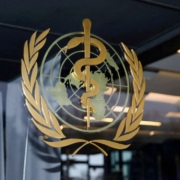The World Health Organization does not have evidence that the monkeypox virus has mutated, a senior executive at the U.N. agency said on Monday, noting the infectious disease that has been endemic in west and central Africa has tended not to change.
Last week, a man in Massachusetts became the first person in the United States to be diagnosed with monkeypox since 2021. On May 22, U.S. health authorities announced they may have found the third documented case in a patient in South Florida.
The U.S. Food and Drug Administration on April 28 issued a long-awaited proposal to ban menthol cigarettes and flavored cigars, a major victory for anti-smoking advocates but one that could face stiff opposition from Big Tobacco.
The Rockefeller Foundation injects $55 million to get Covid-19 shots from airports to arms
Africa, Asia, Caribbean, Coronavirus Disease 2019 (COVID-19), Coronavirus Vaccines, COVID-19 public health emergency, COVID-19 shots, COVID-19 Vaccinations, COVID-19 Vaccines, Foundations, Initiatives, Latin America, Public Health, Public Health Emergencies, Rockefeller Foundation, Therapeutics, VaccinationsThe Rockefeller Foundation announced the launch of the Global Vaccination Initiative, a $55 million investment over two years to support country-led efforts to fully vaccinate 90% of the most at-risk populations in Africa, Asia, Latin America, and the Caribbean.
Health authorities around the world are investigating a mysterious increase in severe cases of hepatitis – inflammation of the liver – in young children.
More than 100,000 Americans died from diabetes in 2021, marking the second consecutive year for that grim milestone and spurring a call for a federal mobilization similar to the fight against HIV/AIDS.
The U.S. Food and Drug Administration on Oct. 12 allowed British American Tobacco Plc to market the company’s Vuse Solo e-cigarettes and tobacco-flavored pods, the first-ever vapor product to get clearance from the health regulator.
The U.S. Food and Drug Administration said on Sept. 9 the regulatory agency needs more time to decide whether e-cigarette maker Juul Labs Inc. and other major manufacturers can sell their products in the United States.
As Covid-19 infections driven by the Delta variant continue to spike across much of the United States, stretching health care services to the limits, the White House is seeking $65 billion to lay the groundwork for future pandemic preparedness.
Covid-19 probably can be eradicated globally, just like polio, according to research just published in BMJ Global Health. That assumes, however, that a high rate of vaccination occurs globally and that there is a quick response to emerging variants.

 Reuters
Reuters





